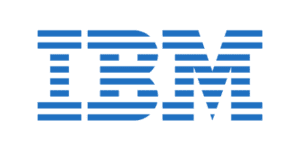Machine learning companies have emerged as key players in enterprise IT over the past few years. Enterprise leaders have realized the value of having software that is capable of learning on its own without human intervention. Machine learning capabilities are baked into many different kinds of enterprise software.
For these types of purposes, organizations often go looking for a general-purpose machine learning platform that can solve a wide variety of needs. The ten vendors on this list offer these sorts of ML tools and deserve consideration if a business is in the market for ML software.
For more information, also see: What is Machine Learning
Table of Contents
Machine Learning Companies Comparison Table
| ML Vendors |
Pros |
Cons |
Pricing |
| Amazon Web Services |
– Convenient for AWS users
– All-in-one approach |
-Expensive |
Upfront pricing and offers a free tier. |
| Databricks |
-Apache Spark-based
-Support for Python, R, and Scala |
-Poor documentation search |
Offers a free 14-day trial or request a demo, for exact pricing, contact sales. |
| Dataiku |
-Visual interface
-Scalable and flexibility |
-Limited features in free tier |
For exact pricing, contact sales. |
| Google Cloud |
-Google’s ML expertise
-Low pricing |
-No hybrid cloud support |
For exact pricing, contact sales. |
| IBM |
-Hybrid cloud and multi-cloud support
-Fast time-to-value |
-Requires data science expertise |
For exact pricing, contact sales. |
| MathWorks |
-Popular in academia
-Good for embedded code |
-Limited language support |
Free trial. For exact pricing, contact sales. |
| Microsoft Azure |
-Suitable for beginners and advanced users
-Low upfront pricing |
-Needs more R models |
Free trial, pay-as-you-go, for exact pricing contact sales. |
| RapidMiner |
-Easy to use
-Open source |
-Lacks flexibility |
For exact pricing, contact sales. |
| SAS |
-Full-featured
-Automation |
-Confusing product lineup |
Free trial, for exact pricing, contact sales. |
| TIBCO |
-Easy data integration
-Excellent data |
-No CI/CD or MLOps |
Free trial, for exact pricing, contact sales. |
For more on ML: Machine Learning (ML) Certifications
Best Machine Learning Companies

Amazon Web Services (AWS): Best For Variety
Many large enterprises use Amazon Web Services (AWS) to store at least some of their data, which gives the company an advantage when organizations are looking for an ML provider. AWS’s machine learning services center around its flagship SageMaker line of services. They include the SageMaker Ground Truth tool for building and managing data sets, SageMaker Studio IDE, SageMaker Autopilot for building and training models, Augmented AI for human review of predictions, and much more.
Pricing:
AWS offers a free tier that companies just getting started with ML can use for a year, along with a pricing calculator. AWS has a pricing page with more details as well.
Features:
- ML predictions without code: AWS’s tools generate predictions using ML for business analysts.
- Build, train, and deploy ML models: With their ML services, a company will have fully managed infrastructure, tools, and workflows for data scientists and ML developers.
- Speed up ML adoption: Using AWS support to set up a company’s AWS ML service can accelerate the process.
Pros
- Integrates with other AWS services.
- Uses an all-in-one approach.
- Upfront pricing and only pay for what is used.
Cons
- AWS services can be expensive.

Databricks: Best For Data Science
Databricks is a pure-play data science and machine learning provider. Databricks’ Unified Data Analytics Platform includes its ML flow-based Data Science Workspace and its Apache Spark-based Unified Data Service, as well as its Redash visualization and dashboarding tool. It runs on AWS or Microsoft Azure, and it integrates with many popular business intelligence tools, including Tableau, Qlik, Power BI, Looker, Mode, TIBCO Spotfire, and ThoughtSpot.
Pricing:
Databricks offers a free 14-day trial or request a demo, for exact pricing, contact sales.
Features:
- Automate experiment tracking and governance: Managed MLflow automatically tracks a user’s experiments and logs parameters, metrics, versioning of data and code, as well as model artifacts with each training run.
- Deploy ML models at scale: A user can deploy their models as REST API endpoints anywhere.
- Simplify data for ML: A user can empower their ML teams to access, explore, and prepare any type of data at any scale in a self-service manner.
Pros
- Access to all of Spark’s features.
- Supports multiple languages.
- Great customer service.
Cons
- Documentation isn’t the best.

Dataiku: Best For AutoML
Dataiku uses AutoML to connect their customers to helpful ML services. They emphasize collaboration and self-service capabilities. It incorporates both notebooks and a drag-and-drop interface, as well as visual data preparation tools, modeling tools and dashboarding capabilities. Dataiku supports Python, R, Spark, Scala, Hive, and more.
Pricing:
Dataiku lists different editions included on the pricing page, and the company also offers a hosted online trial.
Features:
- Time series analysis: The tool provides tools for time-series statistical analysis, as well as resampling, imputations, and interval extraction.
- Feature engineering: To expedite the feature engineering process, AutoML in Dataiku provides automatic feature generation and reduction techniques and applies them to handle strategies.
- Visual deep learning: Dataiku’s model design, deployment, and governance experience makes it easy to include visual deep learning as part of data projects and business applications.
Pros
- Easy visual interface.
- Highly scalable.
- Very flexible.
Cons
- The free version is not full-featured.

Google Cloud: Best For Cloud Software
Google Cloud is Google’s public cloud computing service, including its G Suite cloud-based productivity tools. Google Cloud’s machine learning services include its AI Platform, Cloud AutoML, Deep Learning Containers, and TensorFlow Enterprise. All these services draw on Google’s expertise as one of the largest users of machine learning technology and its research into TensorFlow and AutoML. It offers services for every aspect of the ML pipeline, including continuous integration (CI), continuous delivery (CD), and MLOps capabilities.
Pricing:
Google Cloud offers three pricing tools. A pricing page, a pricing calculator, and a way to contact sales.
Features:
- Various tools: Google’s AI and ML have a total of 17 different products for company needs.
- Cost-effective and flexible: With the tool, a company can improve operational efficiency and make that structured data available.
- Ensure data is accurate and compliant: A business can automate and validate all of their documents to streamline compliance workflows, reduce guesswork, and keep data accurate and compliant.
Pros
- Cloud machine learning expertise.
- Integrates with all Google Cloud tools.
- Affordable pricing.
Cons
- Doesn’t support hybrid cloud models.

IBM: Best For Research Driven ML
One of the early pioneers of artificial intelligence and machine learning, IBM made early headlines with its Watson AI platform. It continues to sell a host of AI and ML services under the Watson brand name. Its Watson Machine Learning product integrates with other Watson tools and supports hybrid and multi-cloud environments. A business can also deploy it on their own servers.
Pricing:
For subscription pricing, a company should contact sales.
Features:
- Research-driven technology: IBM’s AI and ML stays up to date as more research comes to light.
- Digital labor: IBM offers new levels of productivity by optimizing business processes.
- Proactive IT and networks: IBM has predictive algorithms that can forecast and address IT issues before they occur.
Pros
- Ability to deploy on IBM’s cloud, another cloud service, or a company’s own servers.
- ML services can boost productivity by 40 percent.
- Industry leader in AI.
Cons
- Requires some data science expertise.
For more on AI and ML: Artificial Intelligence vs. Machine Learning

MathWorks: Best For Academia
MathWorks’s ML product, MATLAB, is one of the oldest products on this list. While most of the others began as analytics tools, MATLAB began as a tool for mathematicians, scientists, and engineers. However, the same software that was good at handling advanced mathematics turned out to also be good at machine learning algorithms. It has a Statistics and Machine Learning Toolbox and a Deep Learning Toolbox that can be very useful for data scientists.
Pricing:
MathWorks offers a free 30-day trial of MATLAB as well as a free tutorial. For subscription pricing, a company should contact sales.
Features:
- Deploy trained models to hardware: A company can deploy trained models to hardware platforms by generating readable and portable C/C++ code.
- Signal processes: AI and ML offer improvement with signal processing systems for various real-world signals.
- Computational biology products: These MathWorks products help a company to understand and predict biological behavior using data analysis and mathematical modeling.
Pros
- Widely used in academia.
- Good for writing ML code embedded in other software or on devices.
- Highly scalable.
Cons
- Does not support other popular languages like Python and R.

Microsoft Azure: Best For User Flexibility
Microsoft Azure’s Machine Learning service includes both code-based and drag-and-drop interfaces, as well as automation and support for MLOps. It supports a variety of open source tools, including MLflow, Kubeflow, ONNX, PyTorch, TensorFlow, Python, and R. It also incorporates tools for detecting bias and managing fairness.
Pricing:
Azure Machine Learning offers a free account that comes with a $200 credit that could be used toward Machine Learning. They also provide a pay-as-you-go model.
Features:
- Develop machine learning models on your terms: Microsoft Azure allows companies to build machine learning models in your preferred development language, environment, and machine learning frameworks.
- Build machine learning solutions responsibly: A company has the ability to help understand ML models, provide confidential computing, and control the ML with audit trials and datasheets.
- Deploy ML models for important processes: A company can deploy and manage highly scalable, fault-tolerant, and reproducible ML solutions.
Pros
- For both advanced users and beginners.
- Upfront pricing.
- Integrates with other Microsoft Azure services.
Cons
- Needs more R-based models.

RapidMiner: Best For Transparency
RapidMiner is a privately held data science, artificial intelligence, and machine learning vendor. The RapidMiner platform includes its Studio, Go, Notebooks, AI Hub, and Automated Data Science products. It is both open source and extensible, and it promises full transparency. It also aims to provide very fast results for both beginners and advanced users.
Pricing:
RapidMiner offers a free demo of their ML Ops system. For an exact price, contact sales.
Features:
- Handoff from design to production: RapidMiner’s ML Ops uses containerized architecture and code-free model ops to avoid deployment friction.
- Built-in drift prevention: RapidMiners ensures a sustainable model quality and value by monitoring for drift, performance degradation, and service health.
- Insight delivery: The model simulators evaluate predicted results against their expectations.
Pros
- Very easy to use.
- Offers excellent transparency.
- Helpful community forum.
Cons

SAS: Best For Automation
SAS is one of the world’s largest analytics software vendors. Many of the SAS products would be helpful for machine learning, but the most relevant may be its SAS Visual Data Mining and Machine Learning software. Its key features include automated insights and interpretability, automated feature engineering and modeling, a public API for automated modeling, easy-to-use analytics, network analytics, deep learning with Python and ONNX support, integrated data preparation, and in-memory processing. It is part of the larger SAS Viya suite.
Pricing:
A 14-day free trial is available. Pricing is available on request.
Features:
- Interactive programming: SAS uses visual interfaces, drag-and-drop with no coding, and much more benefits.
- Intelligent automation: SAS provides many automation tools such as automatic feature engineering, automatic modeling, automated data prep, and automated pipeline generation.
- Uses modern ML algorithms: SAS uses many modern ML algorithms, including reinforcement learning, decision forests, gradient boosting, and more.
Pros
- One of the most full-featured available.
- Extensive use of automation.
- Excellent reviews from analysts and users.
Cons
For more: How Automation is Used by Uber, Deloitte, AMN Healthcare, Harmonic Machine, and Redington Gulf: Case Studies

TIBCO: Best For Integration
TIBCO sells a range of software products related to data integration, data management, and analytics. TIBCO’s primary machine learning product is TIBCO Data Science. It offers features like data preparation, model building, pre-built templates, version control, auditability, AutoML, embedded Jupyter Notebooks, and more. It also integrates with TIBCO Spotfire, the company’s flagship analytics platform, which also has some ML capabilities.
Pricing:
TIBCO Data Science offers a 30-day trial as well as details on pricing when a free trial is selected.
Features:
- Develop end-to-end AI solutions: TIBCO Data Science software allows organizations to automate simple tasks and create business solutions fueled by ML algorithms.
- Data science for everyone: Harness the entire team, from citizens to experts. Maintain transparency, security, version control, and auditability.
- Simplify complexity and speed innovation: TIBCO Data Science software simplifies data science and machine learning across hybrid ecosystems.
Pros
- TIBCO’s data integration expertise.
- Excellent data preparation capabilities.
- Easy to use.
Cons
Machine Learning Companies Key Features
Machine learning is one of the most advanced technologies in IT. It has impacted a broad range of industries and applications.
Some top features of ML include:
Predictive modeling: Machine learning algorithms can create models to predict and forecast future events. Models are used to determine risks within a company’s needs.
Automation: Machine learning algorithms have the ability to automate simple tasks and can find patterns in data, giving IT teams more time for more complicated tasks and giving more precise and effective analysis.
Scalability: ML techniques are helpful when processing large quantities of data. As a result, businesses can make smart decisions based on information produced from such data.
Generalization: Machine learning algorithms are able to discover patterns in data that can be used to analyze new data. Even though the data is used for training the model, it may not be applied automatically to the task, but they are helpful while forecasting future events.
Adaptiveness: As new data is created, ML algorithms are built to adapt constantly. They can enhance their performance over time, becoming more efficient when more data is made available to them.
How to Choose a Machine Learning Company
The capabilities of machine learning platforms vary widely, and no one ML tool is going to be right for every use case. The selection process should involve carefully taking stock of your organization’s needs — now and in the near future — and finding the best fit for your budget.
Here are some questions to consider:
Who will be using the machine learning software?
Does your team include experienced data scientists or business analysts with less experience? Or both? What languages and tools do they already know, and which platforms are they likely to learn quickly?
How do you want to deploy your solution?
Some ML tools run on public cloud services, some are delivered as software as a service, and some can be deployed on your own servers. You’ll need to find the option that meets your security and governance needs while providing the lowest total cost of ownership.
Where does your data reside?
You’ll need to make sure that the ML platform you choose will be able to ingest data from your sources. If you already store a lot of your data in a particular public cloud, it might make sense to choose an ML service that runs on the same cloud.
Do you need data cleansing, preparation, and management features?
Some platforms offer end-to-end capabilities while others are more narrowly focused on machine learning. Consider what tools you already use and what kind of platform will fit in well with your current workflow.
Do you need continuous integration (CI), continuous deployment (CD), or MLOps capabilities?
Some of the tools listed below will fit better into a modern DevOps-style environment than others. Look for a tool with workflows that match the way your team works.
Are you willing to pay more for faster results?
Machine learning platforms with advanced automation capabilities, templates, and easy-to-use interfaces often cost more, but it might be worth the expense if your ML project starts returning valuable insights more quickly. You need to consider the optimum balance of cost and productivity for your organization.
For more on ML: Key Machine Learning (ML) Trends
Bottom Line: Machine Learning Companies
As the ML market continues to grow, finding the right company can be difficult. ML has started to grow throughout all industries, and companies increasingly adopt it to advance their infrastructure.
With enough careful research – and with the knowledge that ML offerings change rapidly – any company can find the right ML company for their needs.



















